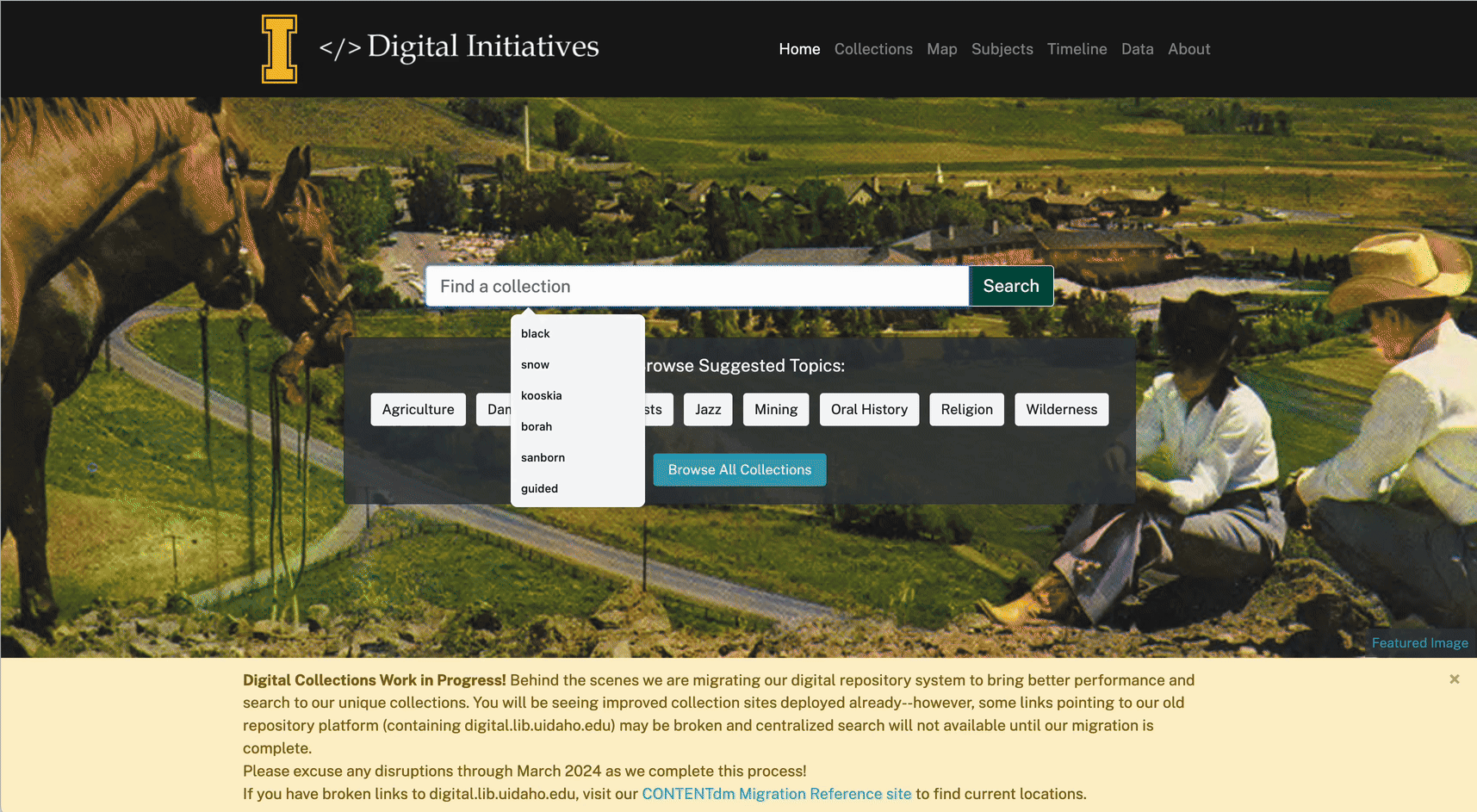Background
The University of Idaho’s Digital Scholarship and Open Strategies (DSOS) department was established in 2008 to digitize the International Jazz Collection and has since expanded to over 130 digital collections.[1] These collections are constructed with CollectionBuilder, an “open source framework for creating digital collections and exhibit websites that are driven by metadata and modern static web technology”. A companion framework named Oral History as Data (OHD) was developed in 2016 to visualize encoded transcriptions and allow researchers to explore oral history recordings by keywords and tags. In this paper, “tagging” refers to a custom set of subject designations that can be tailored by the transcriber depending on the recording’s content and themes.

Our physical workspace at the library is the Center for Digital Inquiry and Learning (CDIL), where our Digital Labs Manager, Digital Project Manager and I support the labor of a small group of student workers and fellowship recipients, generally around 2-5 a semester. Both the CollectionBuilder and OHD frameworks have been designed to be completely open source, only requiring someone with access to Google Sheets, Visual Studio Code and minimal software installation to create, maintain and export digital collections.
✺
The incentive for this project arose from realizing a number of oral history recordings were either untranscribed, partially transcribed or lacking in accuracy following a data migration of our digital collections away from ContentDM in the winter of 2023. Because of the volume of text that needed updating, it was worthwhile to rethink workflows for overall efficiency and accuracy of this project. This case study details my experience over the last six months developing the tools independently and collaborating with one undergraduate fellowship recipient and one graduate student working as transcribers, incorporating their feedback and streamlining processes.